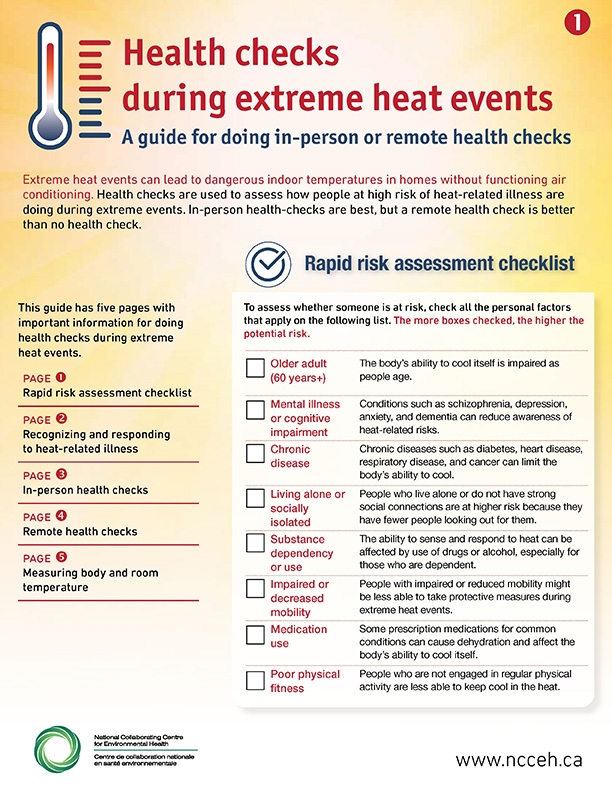National Collaborating Centre for Environmental Health, 2022

Extreme heat events affect different people in different ways, and some people are at higher risk of experiencing heat-related illness if they do not have air conditioning. One way to reduce the public health impacts of extreme heat events is to check in regularly with susceptible people to see how they are coping. However, not everyone knows who is at most risk, how to recognize heat-related illness, or what to do in risky situations. This tool from the NCCEH was designed to help support people doing heat checks by providing all they key information and guidance in a 5-page package. This tool has been co-developed with Dr. Glen Kenny and his heat stress research group at the University of Ottawa.



